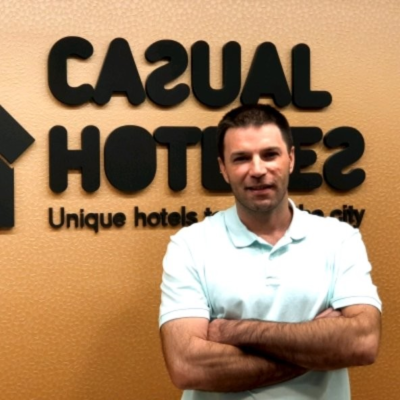Let’s take a look at everything you need to know about tactical vs strategic revenue management to help you understand how each approach can play a role in helping you to achieve your goals.
Strategic revenue management
Strategic revenue management is all about setting specific goals and establishing how you are going to achieve them. These goals might be increasing sales, reaching new markets, cutting operational costs, or driving ancillary revenue.
Think of strategic revenue management as your long-term plan of action; your end goal and your roadmap to success.
Tactical revenue management
Tactical revenue management is all about implementing specific actions to help you achieve your objectives. For example, if your goal is increasing sales then your tactics might include expanding your reach on booking channels or converting more leads. If your goal is reaching new markets, then your tactics might include revamping your website or growing your social media presence.
Think of tactical revenue management as the short-term tactics that will improve your chances of reaching your long-term strategic goals.
Tactical vs strategic revenue management: which is best?
When it comes to deciding between tactical vs strategic revenue management, there’s actually no clear-cut answer to the question ‘Which is best?’. In fact, both approaches play an equally important role in your overall revenue management plan.
As we just saw, having a strategy is vital because it clearly defines what your ultimate objective is. And your tactics are equally essential as they are the actionable stepping stones that will help you reach this objective. So, it’s important to make sure that both approaches form an integral part of your overall revenue plan.
There are a couple of other factors that you need to consider before you create this overall revenue plan, too.
The first relates to the order that you work on each approach. Make sure you start by developing a solid strategy with clear goals before you decide which tactics you will use to achieve them. You need to understand where you need to be before you can decide how you will get there.
The second factor relates to how you distribute your time. Don’t get side-tracked with your tactics. Although it’s important to define clear actions, what matters most is your long-term strategy. Revenue managers often spend too much time working on their tactics because they seem more pressing. But it’s important not to lose sight of the bigger picture: the purpose behind your revenue management plan. Instead, think of your tactics as your tools to help you achieve your main priority: your strategy.

How to create a total revenue management plan
We’ve discussed the difference between tactical vs strategic revenue management and why both approaches are important for boosting your total revenue. Now let’s take a look at what you need to consider when you create each element of your overall revenue management plan.
Define your strategic revenue management approach
As we already explained, the first step is defining your long-term strategy. It’s always best to start with a brainstorming session before you identify your end goals.
What is your hotel’s current position in the market? Who are your guests? Where do they book? What are you doing well? Which elements of your business do you hope to improve? Which ancillary services are most popular? Why?
Once you understand your current positioning and the market you are operating in, you can work out what you want to change, and which objectives will help you get there. These might be increasing total revenue, boosting occupancy, or improving your RevPAR or ADR, for example.
Establish clear tactics to help you achieve your strategic objectives
The next stage is identifying which specific tactics will help you achieve your strategic objectives. In other words, what you are going to do each day to help you reach your long-term goals.
Which specific tactics will help to get your hotel where it needs to be? Should you focus on adjusting your pricing or offering special deals and discounts? Should you redesign your website or increase your reach on third-party OTAs and distribution channels? The tactics you choose will depend on the nature of your long-term strategy.
Once you’ve defined which tactics you are going to use, you then need to decide how you are going to monitor your performance and progress.
This part of your plan is all about collecting and analysing data.
The best way to do this is by using revenue management software. Using the right tools will help you automate a large part of your data collection and analysis processes. You can use software to keep track of market conditions, monitor your competitors’ rates, and stay one step ahead of demand fluctuations.
You can also use software to monitor the impact that your tactics are having on your long-term strategy. That way, you can spend less time focused on the small details and dedicate more efforts to refining your overall strategic goals. And this is the precise balance between tactical vs strategic revenue management that you need to aim for in order to achieve long-term success.


















